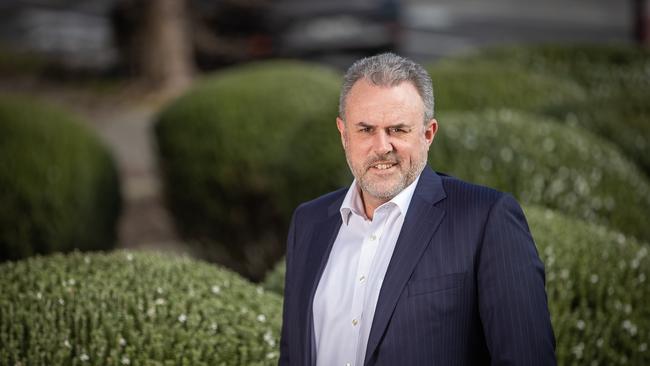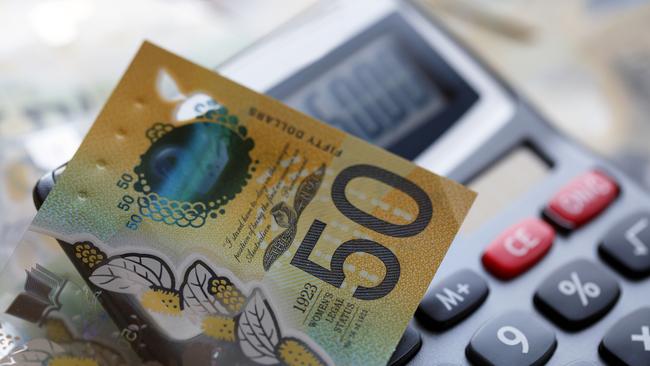Superannuation taxes and limits: understand them to get rich
Most people ‘discover’ superannuation a little too late in life, but there remain plenty of ways to build a bigger nest egg.
Some statistics deliver a brutal, stinging, reality. They hit home, right in the guts. Giving you life regrets, priorities you maybe got wrong. I saw some the other day about parenting that did exactly that. Sat me on my bum.
By the time your kids are 12, you have already had half of the time in hours that you will ever spend with them. By 15, you’ve used up 75 per cent of your time with them. By 18, it was north of 90 per cent. That is, as kids make their way through their teens, they simply need you less. They want to spend more time with their friends and less time wanting your input on their life.
Anyone else with teenagers feeling a bit of regret now?
If your kids are younger, you can still make significant changes to your own priorities. If your kids are older, are you thinking it might be too late?
Now, for everyone with a super fund. Ready for some brutal realities?
The best changes that you could have made to your super fund, that would have made you the most money, should have been done were when you were in 20s. Putting in smaller, extra, amounts before 40 would have had a far bigger impact than larger amounts in your 50s. Most people “discover” superannuation a bit late in life. But the good news. With super, it’s never too late.
In your 50s?
It most often occurs to people in their 50s (maybe late 40s), when there’s a sudden jolt about their superannuation.
“OMG! That’s my super balance? Is that good? Or really bad? Aaarggh! What can I do? WHAT CAN I DO?”

It might be their first thoughts about retirement. Or the kids finishing private school, getting older or leaving home. It might be the home loan diminishing. Sure, yeah, it would have been better to do something 20 years ago. But if you’ve still got 5 or 10 years or more left in the workforce, you can still have a significant impact on your super balance, before clocking off for the last time.
Super’s end game
Let’s start with an understanding of what superannuation is really about. Base level, it’s about forcing employers and workers to put away for their employee’s retirement. Forget that. What’s so cool about super?
It’s a tax haven, where your retirement savings get special treatment. Your super pays stuff-all tax while you’re working. And then zero tax when you’re retired. That’s right. Zero tax in retirement.
If you have an investment portfolio in your own name, filled with shares and property, it will still be fully taxable in retirement. But not your super when you turn on a pension. Nil. And because of the tax difference, having a million in super really is worth more than having a million outside, particularly in, or close to, retirement.
Find your skates
It’s a period known as the “run-up to retirement”. It’s fairly long. Like Dennis Lillee making his way in from somewhere near the boundary. The run-up to retirement covers roughly the last 10 years, give or take, of your working life. It can be a financially sweet spot for many. You’re still earning good money.
The biggest expenses with the kids are done, or nearly done. The mortgage is no longer the burden it once was, or might be quite small. Cashflow is pretty good. You haven’t given the love to your super that perhaps you should have. And that’s just dawned on you.

Super limits
Previous generations were able to shovel money into super. Contribution limits were so high, few had the ability to use them fully. But getting money into super tax-effectively from your salary is now limited. The main way of getting money into super is via “concessional contributions”. They are called “concessional”, because someone (generally you or your employer) is claiming a tax deduction for them.
(That is, the government loses revenue on its tax take on super contributions versus salaries, so it caps how much people can get in.)
You are limited to putting in $27,500 a year in this way. If you’re earning a salary of, say, $120,000, your employer is putting in $13,200 (11 per cent). This leaves $14,300 left of the cap left.
If you want to make the most of this limit, you could get that extra $14,300 into super by either “salary sacrifice”, or “personal deductible contributions”.
Salary sacrifice is done through your employer, while personal contributions are tax-deductible deposits into your super fund from your savings. Once your tax return is done, they work out to be exactly the same, from a tax perspective. Roughly the following.
With that $14,300 that you have contributed extra to super, our $120,000 a year salary earner would have paid $4933.50 in income tax. But by putting the money into super, their super fund only pays $2145. That’s nearly $2800 in tax that hasn’t been paid. It’s waiting for you. You just can’t touch it yet. Do that each year and it becomes pretty powerful.
The steak knives
Channelling Tim Shaw, the Demtel man … but wait, there’s more!
Instead of just your employer’s $11,220 ($14,300 less 15 per cent tax) invested in super, you’ve now got $23,375 invested in super. All that money has only paid tax at 15 per cent on the way in, instead of your marginal tax rate, whatever it now earns also only pays tax at a maximum of 15 per cent.
Compounding at a low-tax rate, each year, into retirement. And once you start a super pension, it pays no tax.
Five year limits
If you haven’t paid enough attention to your super for a few years, I’ve got some good news for many of you. You can play catch up.
That is, if you didn’t use your full limits in previous years, the ATO will allow you to make extra tax-deductible super contributions. You can use the unused portion of your concessional contributions cap up to five years’ previous.
These are known as the “carry forward” rules and there are, of course, limits. For example, if your super balance was over $500,000 at the start of a financial year, you can’t do this.

But for many who are just now waking up to their super, and have the cashflow
capacity, it could allow you to make a major contribution to super to top up on
previous years when you were asleep at the wheel.
How much can you put in? The ATO keeps a track of how much you have put in to your super and you can find this information by logging in to your mygov account.
For someone who has been earning roughly $100,000 and has only ever had the Superannuation Guarantee paid in, they might have the ability to not just hit their $27,500 target this year, but they might have another $70-90,000 that they could sock into super over the next few years, potentially saving tens of thousands in tax (to be invested, for your retirement). If you’re not sure, though, get advice.
Why give extra?
As I said earlier, when your cash flow frees up a bit, generally in your 50s, making the most of the super contributions limits hits a point of being a no-brainer for many.
You’re saving thousands of dollars a year in tax. You just have to wait a few years to get your hands on it.
Why donate extra to the tax office? To quote the late Kerry Packer, it’s not like governments are so good at spending it that we should be donating extra.
Decide today
It’s sort of the reverse of spending time with your kids. The influence you can have on your kids diminishes as they get older and your importance to their survival reduces to zero.
With your super … sure, there are things you should have done when you were younger, such as take more investment risk and contribute more earlier. But with super, you’re going to more reliant on it and spend more and more time with your super as you age. And the more love you can show it, starting today, the better the relationship you’ll have.
Bruce Brammall is both a financial adviser and mortgage broker and author of books including Debt Man Walking. E: bruce@brucebrammallfinancial.com.au.
Scott Pape is on leave.





To join the conversation, please log in. Don't have an account? Register
Join the conversation, you are commenting as Logout